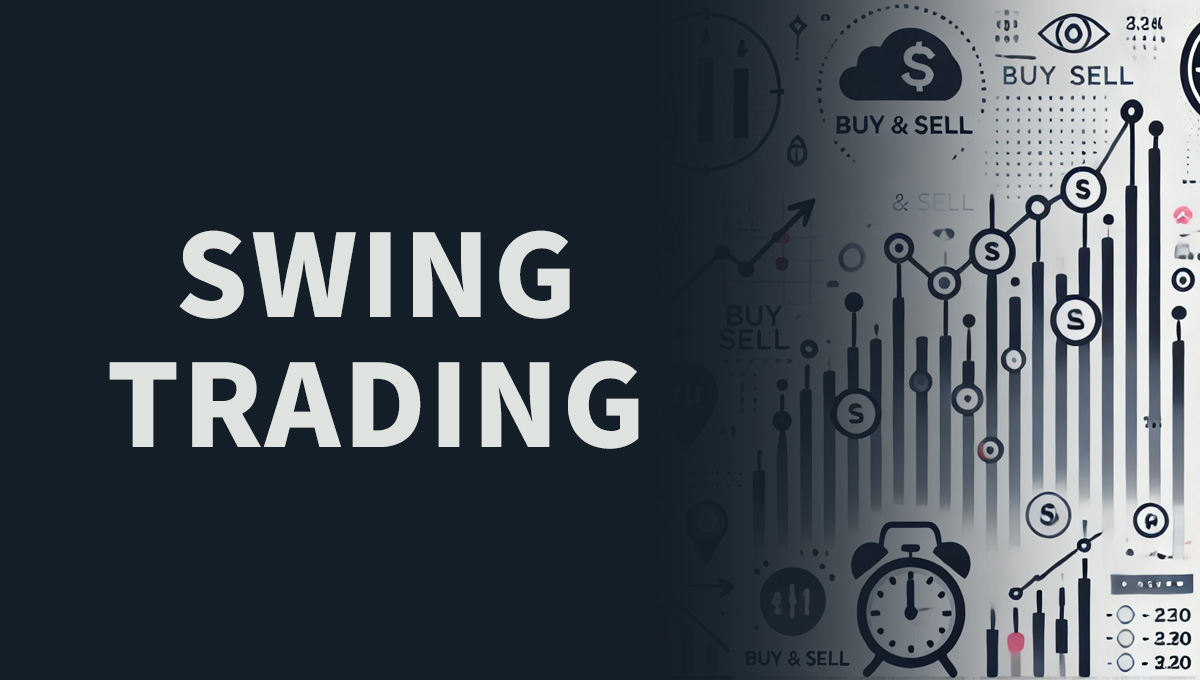Market psychology is critical for swing trading, affecting decisions through emotions like fear, greed, and overconfidence. By understanding these psychological factors, traders can make better choices and get better results.
Understanding Market Psychology
Market psychology encompasses the collective emotions and sentiments of all participants in a financial market, profoundly impacting market movements. This psychological landscape can lead to trends and reversals driven more by traders’ emotions than by fundamental data. Understanding these dynamics can significantly enhance trading strategies and outcomes.
Key aspects of market psychology include:
- Emotional Responses: Emotions significantly influence decision-making, often compelling traders to buy or sell based on feelings rather than objective analysis.
- Herd Behavior: The tendency for traders to follow the crowd, amplifying trends and sometimes leading to market bubbles or crashes.
- Confirmation Bias: A common cognitive bias where traders seek out information that supports their existing beliefs, overlooking evidence that may contradict them.
- Cognitive Dissonance: The mental discomfort experienced when holding two contradictory beliefs, often leading to irrational trading decisions.
To better leverage market psychology in swing trading, maintain a trading journal to capture emotional reactions to various trades. This tracking can highlight behavior patterns and guide you in developing strategies to combat negative emotions.
The Role of Fear and Greed in Trading
Fear and greed are the two most influential emotions guiding trader behavior. Grasping how these emotions operate is vital for effective swing trading strategies.
Fear
Fear typically surfaces during market volatility and uncertainty, leading to several negative trading behaviors:
- Panic Selling: A frantic response to loss, resulting in the urge to liquidate positions at unfavorable prices.
- Missed Opportunities: Inhibiting trade entry due to hesitation driven by fear of market declines.
- Loss of Strategic Focus: Allowing fear to cloud judgment and deviate from pre-established trading plans.
- Increased Volatility: Fear can aggravate market fluctuations, making it essential to recognize how collective anxiety impacts price movements.
To combat fear, traders should:
- Clearly define risk tolerance levels and establish stop-loss orders to enhance feelings of security during tumultuous market conditions.
- Engage in simulation trading to build confidence and experience without financial risk.
- Practice visualization techniques to mentally prepare for potentially challenging trading scenarios.
- Adopt a long-term perspective to diminish the impact of short-term fear on trading decisions.
Greed
Greed propels traders to chase unattainable profits, leading to detrimental behaviors such as:
- Overtrading: Taking excessive positions and holding onto losing trades in the hope of eventual profits.
- Ignoring Stop-Losses: The inclination to keep a losing position open due to an inflated belief in potential recovery.
- Creating Unrealistic Expectations: Pursuing profit without considering market realities or individual risk profiles.
- Fear of Missing Out (FOMO): The anxiety of missing potential gains can lead traders to enter trades impulsively.
To mitigate the adverse effects of greed, traders should:
- Establish clear profit targets and stick to them to systematically take profits.
- Engage in regular self-assessment to manage expectations realistically and acknowledge when to execute trades.
- Utilize set limitations on the number of trades or the capital allocated to any single trade to foster disciplined trading.
Overcoming Psychological Barriers
Psychological barriers can obstruct effective trading. Identifying and addressing these barriers is crucial for trading success.
Common Psychological Barriers
Several barriers can impede traders:
- Loss Aversion: The preference for avoiding losses over acquiring gains, leading to overly cautious strategies.
- Overconfidence: An inflated sense of one’s market insights, which may result in reckless decisions.
- Recency Bias: The tendency to weigh recent events more heavily, potentially skewing a trader’s outlook on future trends.
- Emotional Attachment: Holding onto stocks due to emotional connections, which may divert focus from fundamental analysis.
- Fear of Commitment: Hesitance to commit to trades based on anxiety over potential outcomes.
To overcome these barriers, consider:
- Engagement in continuous education to enhance market knowledge and refine trading skills, effectively lowering reliance on emotions.
- Practicing mindfulness techniques that cultivate emotional awareness and improve decision-making.
- Setting up accountability mechanisms, such as sharing trade analyses with a community or mentor to foster objective feedback.
- Developing a personal trading philosophy that emphasizes discipline and consistency over emotional reactions.
Practical Tips for Managing Emotions
Effective emotional management is vital for successful swing trading. Implement these strategies to maintain control over your trading decisions:
- Develop a Trading Plan: Creating a well-defined plan detailing entry and exit points reduces the emotional impact of trading.
- Utilize Automated Trading: Employ algorithms to minimize emotional involvement by executing trades based on predefined criteria.
- Set Realistic Expectations: Acknowledge that losses are a part of trading; understanding this can alleviate emotional reactions when losses occur.
- Review and Adjust: Regularly reassess your trading approach to incorporate what you’ve learned about your emotional triggers and market psychology.
- Use Journaling: Keeping a daily journal of your trades and emotions can provide insight into your emotional patterns and triggers.
By delving into and mastering the psychological dimensions of trading, you can significantly enhance your swing trading outcomes. Awareness of how emotions drive decisions and implementing strategic approaches to manage them can lead to a more disciplined and profitable trading experience. What emotional challenges have you faced in your trading journey? Share your experiences and strategies in the comments below!






![Top 1200 UK Companies [FTSE All-Share + FTSE AIM All-Share] – Excel Download](http://store.disfold.com/wp-content/uploads/sites/11/2024/05/top-1200-uk-companies-ftseallshare-aimallshare-small.jpg)
![Top 500 Australian Companies [All Ordinaries] – Excel Download](http://store.disfold.com/wp-content/uploads/sites/11/2021/04/top-500-australian-companies-allordinaries-small.jpg)